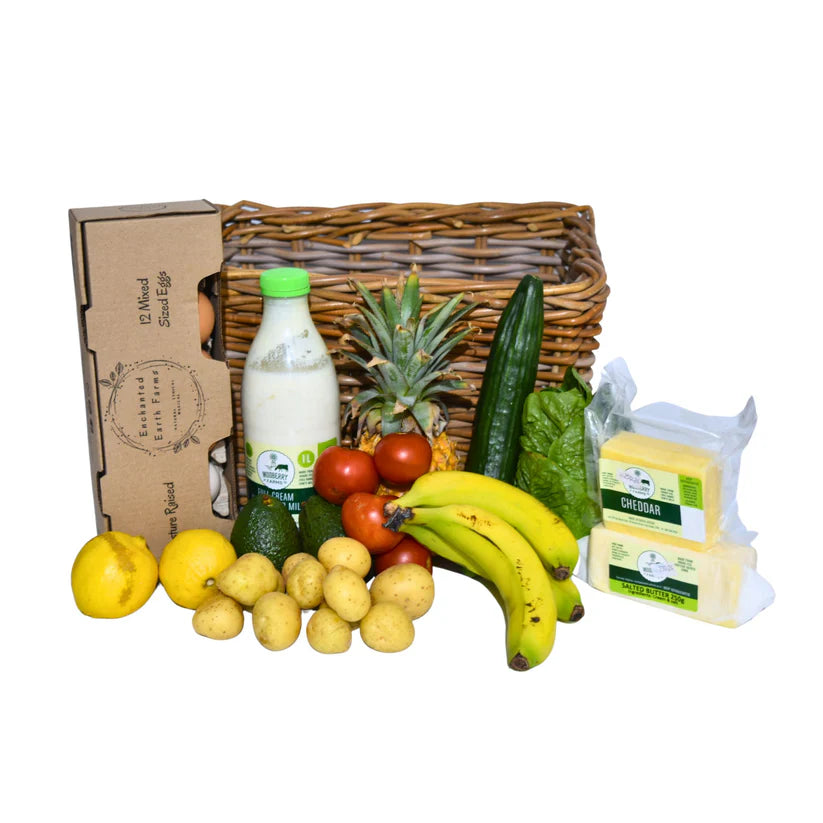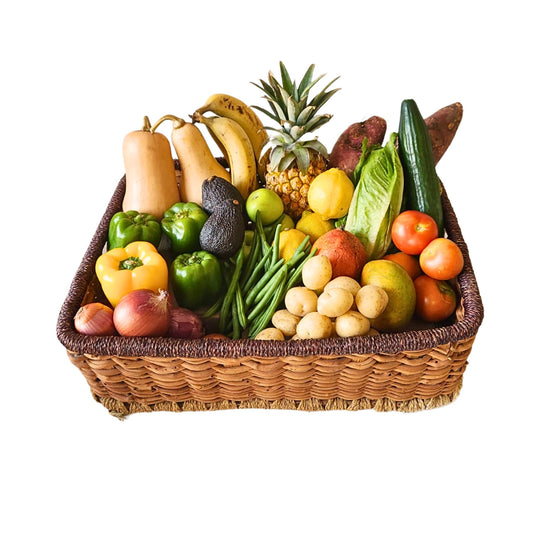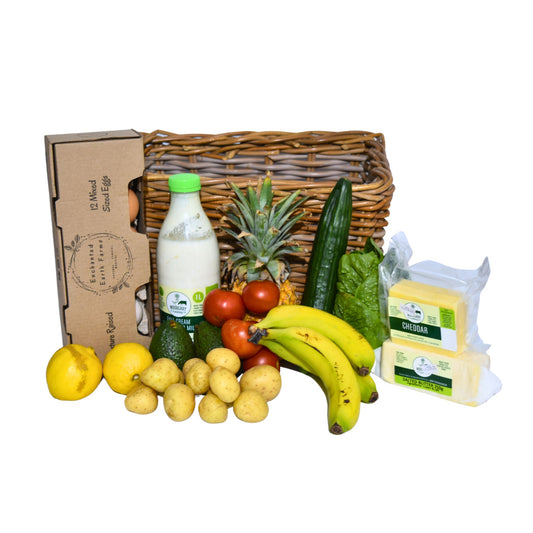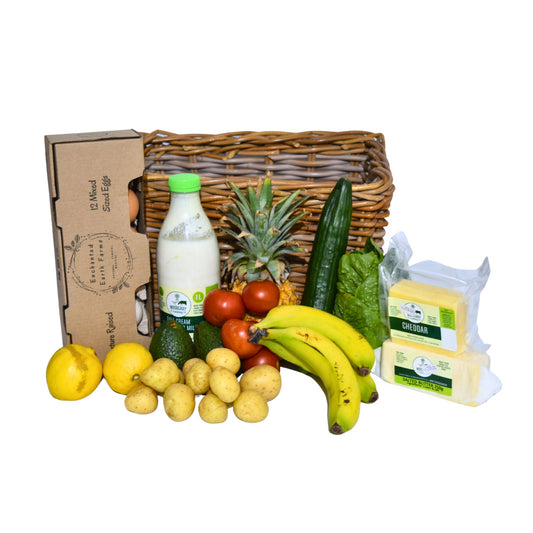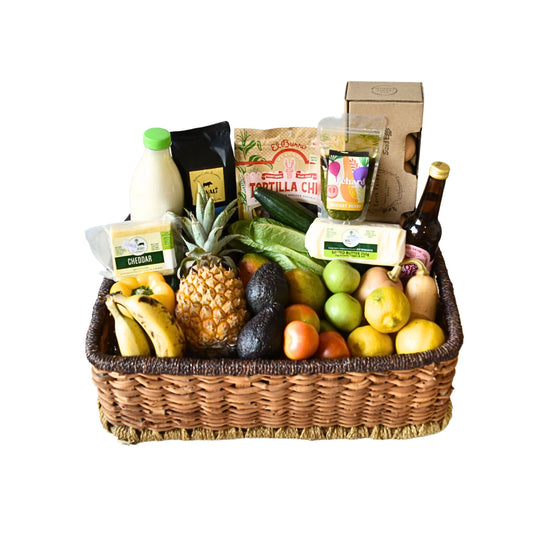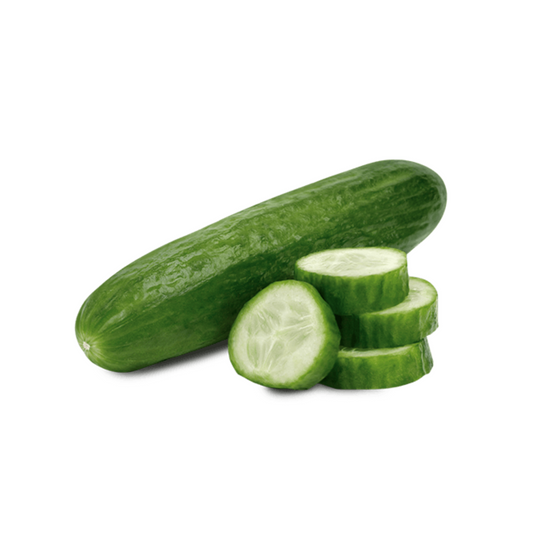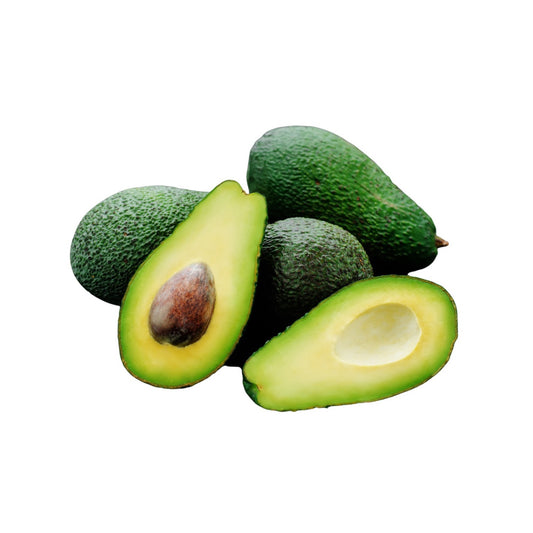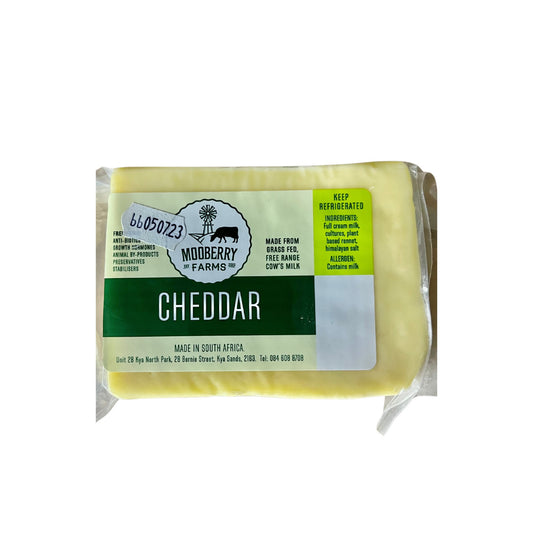Article Summary:
- Organic food is produced without synthetic chemicals, pesticides, or genetically modified organisms (GMOs), emphasizing sustainable farming practices that promote environmental health and animal welfare.
- The organic certification process involves strict regulations and inspections to ensure that products labeled as organic meet specific standards, providing consumers with confidence in the authenticity of their food.
- Common misconceptions about organic food include beliefs that it is always healthier or pesticide-free; however, while organic foods may have lower pesticide residues, they can still contain naturally-derived pesticides and do not guarantee superior nutritional content compared to conventional foods.
Organic food has gained significant popularity in recent years as more consumers become aware of the impact their food choices have on health, the environment, and animal welfare. But what exactly is organic food? At its core, organic food refers to products that are grown and processed without the use of synthetic fertilizers, pesticides, genetically modified organisms (GMOs), or artificial additives. This approach to agriculture emphasizes sustainability, biodiversity, and the health of ecosystems. As people increasingly seek healthier and more environmentally friendly options, understanding the principles and benefits of organic food becomes essential. In this article, we will explore the definition of organic food, the certification process it undergoes, its various categories, and the common misconceptions surrounding it.
Definition of organic food
Organic food is defined as products that are produced through farming practices that prioritize ecological balance, biodiversity, and sustainability. This definition encompasses a wide range of food items, including fruits, vegetables, grains, dairy products, and meats. The key characteristic of organic food is that it is grown without the use of synthetic fertilizers, pesticides, herbicides, or genetically modified organisms (GMOs). Instead, organic farming relies on natural methods to promote soil health and plant growth, such as crop rotation, composting, and the use of organic fertilizers like manure or plant-based materials.
In addition to cultivation practices, organic food must meet specific standards set by regulatory bodies to be labeled as "organic." These standards vary by country but generally require adherence to strict guidelines throughout the entire production process—from farming to processing and packaging.

Shop our 500g Organic Rainbow Cherry Tomatoes at Orchard Food
Organic food also emphasizes animal welfare, with regulations governing how livestock is raised. Animals must be provided with access to outdoor spaces, fed organic feed, and treated without the routine use of antibiotics or growth hormones. This holistic approach not only supports the health of the animals but also contributes to healthier food products for consumers.
Overall, the definition of organic food encapsulates a commitment to sustainable agricultural practices that aim to protect the environment while providing consumers with healthier food options free from harmful chemicals and additives. As interest in organic food continues to grow, understanding its definition helps consumers make informed choices about their diets and the impact those choices have on their health and the planet.
The organic certification process
The organic certification process in South Africa is designed to ensure that products labeled as organic meet strict standards and regulations. This process is overseen by accredited certifying bodies, such as Ecocert South Africa, which has been assisting stakeholders in implementing and promoting sustainable practices through certification, consulting, and training services since 2002.
To become certified organic in South Africa, a farm or business must first adopt organic practices and select a USDA-accredited certifying agent. The operation then submits an application and fees to the certifying agent, who reviews the application to verify that the practices comply with organic regulations. This includes assessing the farm's organic system plan, which details how the operation will comply with regulations based on its unique characteristics, such as tillage, grazing, harvesting, storing, and transporting methods, as well as approved substances used during the growing or handling process, monitoring practices, record-keeping systems, and barriers that prevent commingling with non-organic products or contact with prohibited substances.
Once the application is reviewed, an inspector conducts an on-site inspection of the applicant's operation to ensure compliance with the organic system plan and regulations. The inspector evaluates various aspects of the farm or facility, such as fields, soil conditions, crop health, weed and pest management, water systems, storage areas, equipment, feed production and purchase records, animal living conditions, and health records.
After the inspection, the certifying agent reviews the application and the inspector's report to determine if the applicant complies with the organic regulations. If the operation meets all requirements, the certifying agent issues an organic certificate listing the products that can be sold as organic from that operation.
To maintain organic certification in South Africa, certified farms and businesses must undergo an annual review and inspection process. This rigorous system ensures the integrity of organic products and promotes sustainable agricultural practices that benefit both the environment and consumers.
Benefits of choosing organic food
Choosing organic food offers numerous benefits that extend beyond personal health to encompass environmental sustainability and ethical farming practices. One of the primary advantages of organic food is that it is produced without synthetic pesticides, herbicides, and fertilizers, which can leave harmful residues on conventional produce. By opting for organic, consumers reduce their exposure to these chemicals, potentially lowering the risk of health issues such as allergies, hormone disruption, and certain chronic diseases. Additionally, organic foods are often fresher and more flavorful, as they are typically grown in nutrient-rich soils and harvested at their peak ripeness.
Organic farming practices also promote biodiversity and environmental health. By avoiding chemical inputs, organic farmers contribute to healthier ecosystems, preserving soil fertility and reducing pollution in nearby waterways. This sustainable approach helps maintain the balance of local flora and fauna, supporting wildlife habitats and fostering a more resilient agricultural system. Furthermore, organic farming often emphasizes crop rotation and cover cropping, which enhance soil health and prevent erosion.
Another significant benefit of choosing organic food is the ethical treatment of animals. Organic standards require that livestock be raised in humane conditions, with access to outdoor spaces and organic feed. This commitment to animal welfare not only improves the quality of life for farm animals but also results in healthier meat and dairy products for consumers.
Supporting organic agriculture also has positive implications for local economies. By purchasing organic products, consumers often support small-scale farmers who prioritize sustainable practices over large industrial operations. This helps strengthen local communities and promotes a more robust food system.
Overall, the benefits of choosing organic food encompass improved health outcomes, environmental sustainability, animal welfare, and support for local economies. As awareness of these advantages continues to grow, more individuals are making informed choices that align with their values and contribute to a healthier planet.
Common organic food categories
Common organic food categories encompass a wide range of products that cater to various dietary needs and preferences. One of the most prevalent categories is organic fruits and vegetables, which are grown without synthetic pesticides and fertilizers, ensuring that they are free from harmful chemical residues. These fresh produce items often boast superior flavor and nutritional value, making them a popular choice among health-conscious consumers. Common organic fruits include apples, bananas, berries, and citrus fruits, while popular organic vegetables range from leafy greens like spinach and kale to root vegetables such as carrots and potatoes.

Shop our 250g Cheddar Cheese at Orchard Food
Another significant category is organic grains, which includes products like rice, oats, quinoa, and whole wheat flour. Organic grains are cultivated without chemical additives and are often processed with minimal intervention, preserving their natural nutrients. These grains serve as essential staples in many diets and can be used in a variety of dishes, from breakfast cereals to baked goods.
Organic dairy products also represent a vital category within the organic food market. These products include milk, cheese, yogurt, and butter sourced from cows that are raised on organic feed and given access to pasture. Organic dairy farming practices emphasize animal welfare and avoid the use of antibiotics or growth hormones, resulting in healthier options for consumers.
Meat and poultry are additional important categories in the organic food landscape. Organic meat comes from animals raised in humane conditions on organic feed without the use of synthetic additives or antibiotics. This commitment to ethical farming practices not only benefits animal welfare but also provides consumers with high-quality protein sources.
Lastly, organic packaged foods have gained popularity as more consumers seek convenient options that align with their health values. This category includes snacks, sauces, cereals, and frozen meals made with organic ingredients. While these products offer convenience, they still adhere to the same strict standards that govern all organic foods.
Misconceptions about organic food
Misconceptions about organic food are widespread, often leading to confusion among consumers regarding its benefits and characteristics. One common myth is that organic food is inherently healthier than conventional food. While many people believe that organic products are packed with more nutrients, research has shown that the nutritional differences between organic and non-organic foods are minimal. Factors such as soil quality, crop variety, and ripeness at harvest play a more significant role in determining nutrient content than the farming method itself.
Another prevalent misconception is that organic food is completely free from pesticides. In reality, organic farming does allow the use of certain natural pesticides, which can be just as effective as synthetic ones. This means that while organic foods may have lower pesticide residues overall, they are not entirely pesticide-free. Additionally, some consumers think that buying organic means they must purchase all their food organically to reap any benefits. However, one can selectively choose organic options for certain produce items known to have higher pesticide levels while still purchasing conventional foods for others.
Cost is also a significant factor in the misconceptions surrounding organic food. Many people believe that organic products are always prohibitively expensive, but prices can vary widely depending on the store and location. In some cases, local farmers' markets or community-supported agriculture programs offer organic produce at competitive prices.
Lastly, there is a belief that all organic food is locally sourced or environmentally friendly. While organic farming practices aim to reduce environmental impact and promote sustainable agriculture, the term "organic" does not guarantee local production. Organic foods can be imported from other countries, which may contribute to a larger carbon footprint due to transportation.
Understanding these misconceptions is crucial for making informed decisions about food choices. By educating themselves about what organic really means and the realities of its production methods, consumers can better navigate the complexities of the organic food market and choose options that align with their values and health goals.


